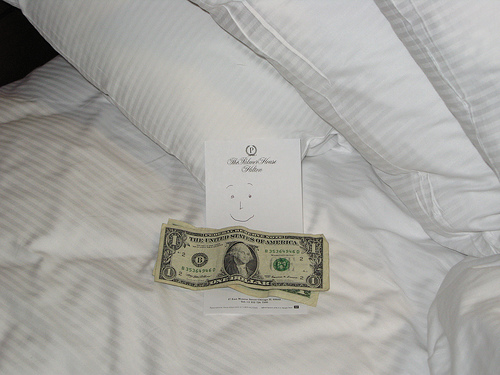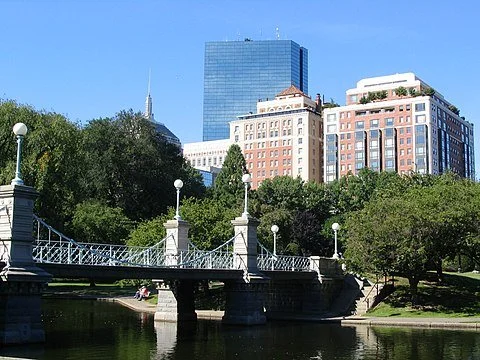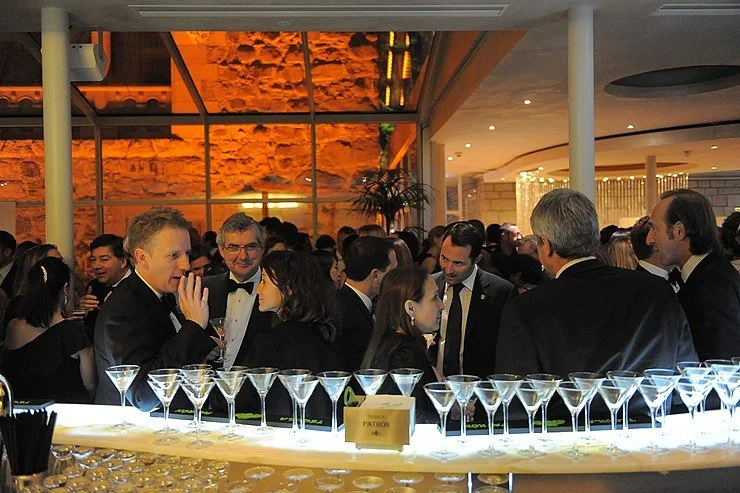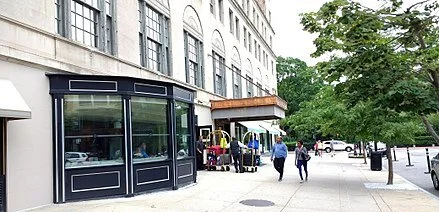Adapted from Robert Whitcomb’s “Digital Diary,’’ in GoLocal24.com
I spent a recent evening at the Newbury Hotel (the original part of which opened in 1927), the swanky establishment in Boston’s Back Bay that some of us still call The Ritz-Carlton or just The Ritz. I thought that the evening, to which I was invited by a couple of Boston friends (thank God I wasn’t charged for it) would include a tour of the hotel, but in fact it was mostly a pleasant if noisy cocktail party in the fancy Italian fashion store in the hotel called Zegna, part of the Milan-based company of that name. Zegna makes very well-made stuff that few can afford.
Drinks were followed by dinner, with many small plates of (I think) northern Italian cuisine, in the rooftop restaurant called Contessa. The joint has spectacular views of the increasingly Manhattanized Downtown Boston skyline. The often clear and windy atmosphere of late fall and winter provides the year’s most spectacular nightime views of Boston and New York.
In Contessa, a hip great-grandson of the company founder promoted the company as being very “green,’’ touting among other things its spectacular nature preserve in the Piedmont region of northern Italy. When it comes to promotion, it’s hard to beat wrapping yourself in green, especially if you’re running a high-end company. Rich people like to consider themselves environmentalists, especially when it comes to protecting land from development near their suburban or rural estates!
I had almost forgotten how noisy such events can be, with the chattering getting louder and louder as second and third drinks were consumed. Lots of quick, superficial friendliness even as some party goers (social X-rays?) relentlessly sought out the most “important’’ people while trying to politely detach themselves from those they feared might be nonentities or just boring. Tom Wolfe would have enjoyed it.
“Who are these people, and what do they want?’’ I kept asking myself, before skulking off to a corner and glancing at a magazine (not Vogue) for a quiet moment.
The Newbury, overlooking the beautiful Public Garden, had quite a colorful reputation as the Ritz-Carlton, both as place for Proper Bostonians to celebrate special events and for the glitz that came from it being for decades a popular place for Hollywood and Broadway celebrities to stay (and sometimes be outrageous in).
It had its own ways.
There was the sign that said “not an accredited egress”’ over one of the doors in the lobby and a strict dress code. More than half a century ago, soon after I landed a job as a reporter and writer at the now-long-dead Boston Herald Traveler, and feeling flush with my $175-a-week salary, I took a girl for a drink in the famous (especially for celebrated writers) ground floor bar of the hotel, whose windows looked out on the Public Garden, a view that at night curiously made it seem that the drinkers were in a bluish underwater chamber.
We ordered our drinks and enjoyed them and the salted peanuts, probably from S.S. Pierce, that purveyor of food, some of it exotic – rattlesnake meat! -- to affluent New Englanders, especially WASPs. But then, our waiter bent down and murmured in my ear: “I’m sorry, Sir. But this will have to be the last drink. The lady is not properly attired.’’ The problem was that she was wearing pants and not a dress or a skirt. But of course back then, people could smoke away to their lungs’ discontent in bars. Some things were a lot looser then.
Years before that, when someone took me as a kid to the grand and very formal dining room, I was impressed that they served unsalted butter, which seemed very exotic to my untrained palate.
Ah, old Boston….





